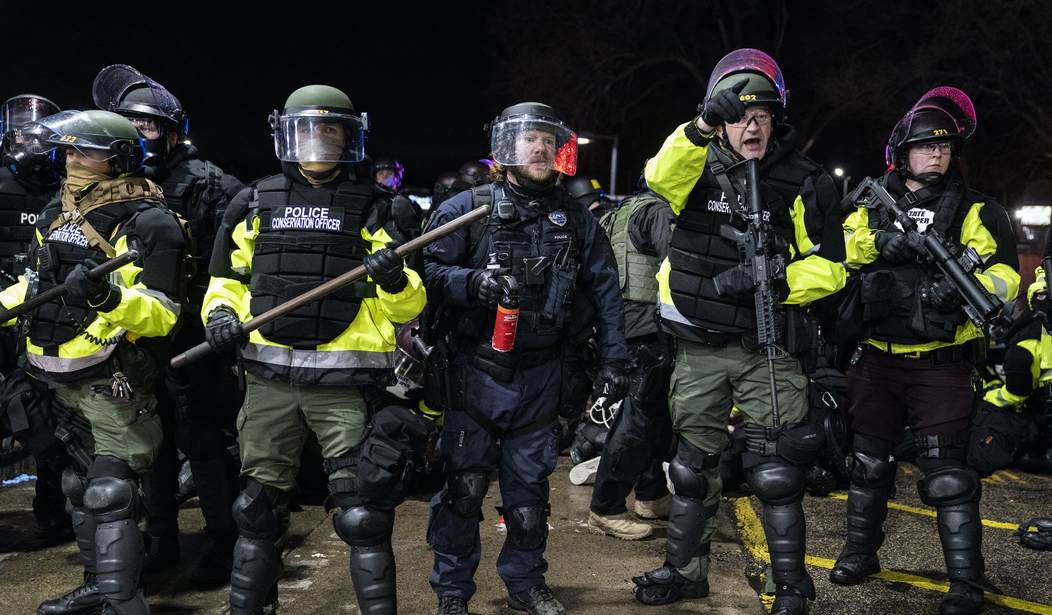This is a question that popped up over at Reason, where Joe Lancaster has studied the applicable laws. Is it legal for private citizens to film the actions of the police, not just in public, but inside the publicly available sections of police stations? I’ll confess that my immediate response was to assume that the answer would pretty much always be “yes.” But it turns out that the police don’t always agree and many departments have attempted to enact and enforce bans on filming their activities. And even when sunshine laws are passed in some states assuring the rights of citizens to do this, the police have attempted to find ways to get around those laws. The NYPD in particular has been problematic in this area, seeking to stop residents from filming their activities. They offer some reasons for taking this position that might make sense to some people… sort of. But it’s still not a good look.
Recording the police can be an effective tool for transparency and oversight, but a new report shows how far the New York Police Department will go to keep from being filmed.
Courts have generally upheld a right to film so long as citizens don’t physically obstruct official police business. But police departments are constantly relitigating the question. In 2018, for instance, North Carolina police claimed that a right to record the police did not include a right to livestream the police. A federal appeals court rejected that argument in February…
The NYPD claims that while recording police may be okay, recording inside a police station is not. A department spokesperson told Gothamist that recording inside precincts is forbidden “because it undermines the privacy of people who interact with the criminal justice system and compromises the integrity of ongoing investigations.”
The linked article examines the activities of so-called “First Amendment auditors.” This is a new subgenre of YouTube content creators. They go into public places including police stations and become confrontational about filming public officials to see what sort of response they receive. One such “auditor” in New York City named Sean Paul Reyes has been arrested multiple times for doing this.
I don’t see any reason to become intentionally provocative with the police or other public officials just to get a response out of them. If they aren’t trying to stop you from filming, you should be able to continue to do so peacefully and respectfully. But if you’re getting up in their faces, particularly when it comes to the cops, there’s an old lesson about “poking the bear” that comes to mind.
For their part, the NYPD claims that filming inside the police station is banned “because it undermines the privacy of people who interact with the criminal justice system and compromises the integrity of ongoing investigations.” As I suggested above, that explanation isn’t entirely without merit. I strongly believe you should be able to film the activities of the police themselves while they are in uniform and on duty. After all, they work for the taxpayers. But any civilians coming into the police station are a different matter. If they are suspects, they still have a limited right to privacy. And if they are regular citizens who may be reporting a crime, publishing a video of them doing so could place them in danger. Also, protecting the identity of undercover officers could be a significant concern.
But for run-of-the-mill activity by uniformed police, it seems as if filming them should be allowed by default. The courts don’t always agree, however, and Lancaster highlights multiple instances where they have ruled in favor of the police. In New York City, where Reyes records his stunts, the City Council passed a law in 2018 called the Right to Record Act. The bill established an affirmative right for residents to film the police “in their official capacity” in most, though not all instances. There is no exception for the public areas of police stations.
The law also required the NYPD to publish an annual report detailing the number of incidents where someone was arrested who had been filming the police. In 2021 and 2022, there were 2,700 such arrests. But we should note that not all of those people were arrested solely for filming the police. Many just happened to be filming when they were being arrested for something else. Still, that’s a lot of arrests.
I’ll confess that this turned out to be a more complicated topic than it had appeared to me at first glance. In general, I still lean toward sunshine being the best disinfectant and believe that the public should be allowed to know what law enforcement is up to. But there are some situations where keeping a record of police activity could expose other people and produce negative consequences. So… it’s complicated.
To give you a flavor of what these “First Amendment auditors” are up to, here’s one sample from Mr. Reyes.









Join the conversation as a VIP Member